Yorkshire's vineyards readying for season ahead amid huge boom in interest
Now the region’s vineyards, promising a taste of Yorkshire provenance in every bottle, are holding their own in international markets having won countless awards.
And at such a crucial time for the region’s vines, following late frosts in part of the region, there are hopes for some summer sunshine ahead.
Advertisement
Hide AdAdvertisement
Hide Ad“Wine is unique, in that it’s a reflection of true provenance,” says Kieron Atkinson of Renishaw Hall Vineyard, on the outskirts of Sheffield. “It’s the soil from here, the weather from here, that completely dictates the sense of the wine.
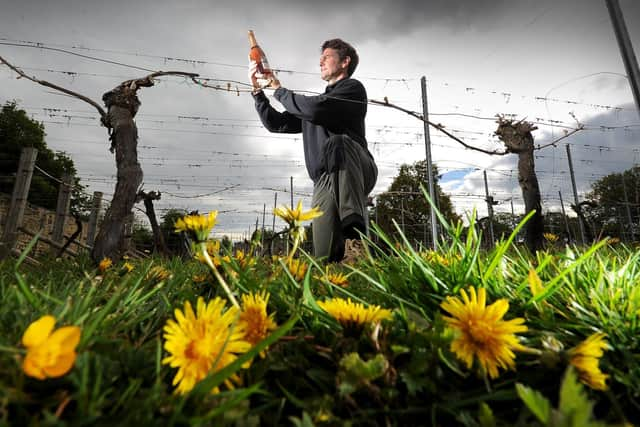

“The question used to be, ‘could we do it up here?’,” he adds. “We are on the other side, we’ve proven that we can.
“Tasting is believing. If it’s well made, it’s going to be good.”
English vineyards produced 13.2m bottles of wine in 2018, in a sector that has quadrupled in size in the past two decades.
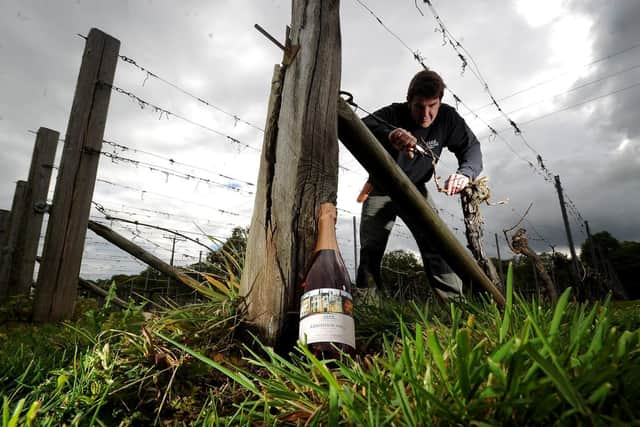

Advertisement
Hide AdAdvertisement
Hide AdRenishaw Hall, once the most northerly vineyard in the world, can in a good year yield as many as 5,000 bottles.
“There’s a tremendous draw to it, in making wine,” said Mr Atkinson. “You’re taking the grape, from bud to vine, to wine. You can become very passionate about the whole process.”
In Upper Dunsforth in the Vale of York, a small family run vineyard has been expanding its roots.
History suggests wine making here may date back to Roman times, and Dunesforde, planted in 2016, now grows four grape varieties across 6,000 vines.
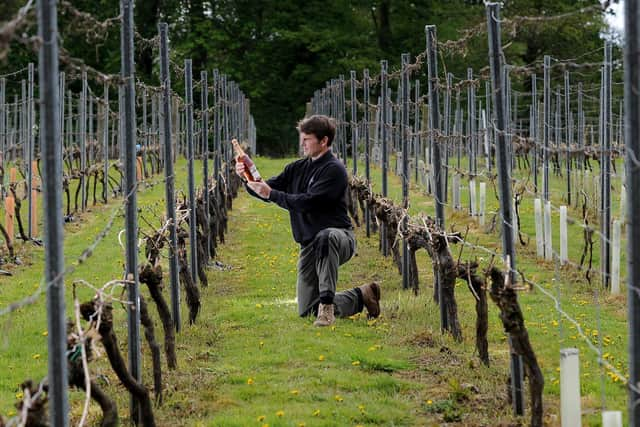

Advertisement
Hide AdAdvertisement
Hide AdSunshine over recent weeks had promised a perfect start to Yorkshire’s growing season, with the vines bursting into life and the first leaves beginning to bloom.
Then came this week’s late frosts, and across the country fires were lit in the hopes of wading off threat to the newly-burst buds.
Hopes for a hot summer
Production in Dunesforde is small, its first cool-climate wines sold in October, and the vines usually hand-tended by volunteers. This year, following the frosts, Dunesforde is hopeful for a second growth.
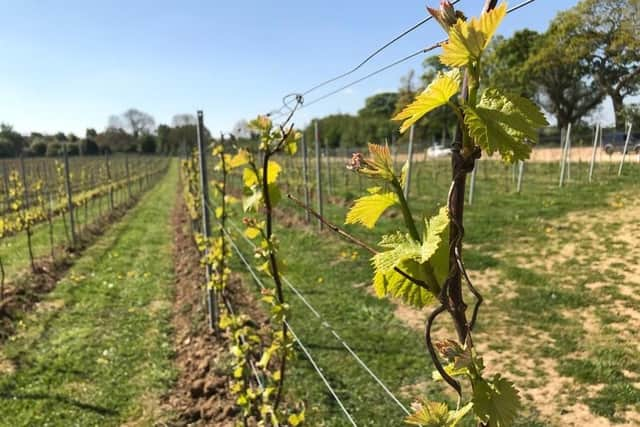

“A good hot summer will help,” said Kat Nellist, reflecting on the community’s devotion to support local brands. “We find that people are interested in the story behind our wine as much as enjoying the wine itself.”
Advertisement
Hide AdAdvertisement
Hide AdRyedale Vineyards, at the foot of the Wolds, has 13,000 vines. Once known as the UK’s most northerly vineyard, that title has long gone as even Cumbria is harvesting grapes.
Run by Jon Fletcher and his wife Michelle, it is celebrated for its off-dry white wine, a fruity red, and a ‘plum cup’ long drink, similar to Pimms.
The region is holding its own, says Mr Fletcher: “The wine being produced in the UK is now comparable to anywhere in the world. There’s a lot of skill now, in English wine, that is being rapidly refined.”
There is a riveting tale to be told, in the ripening vines of Yorkshire’s vineyards and the practices used by its wine makers to cultivate its unique tastes.
Advertisement
Hide AdAdvertisement
Hide AdThere are now around a dozen vineyards in the region, selling direct and through farm shops, and in coming months they are hopeful they may be able once again to open their doors to tours.
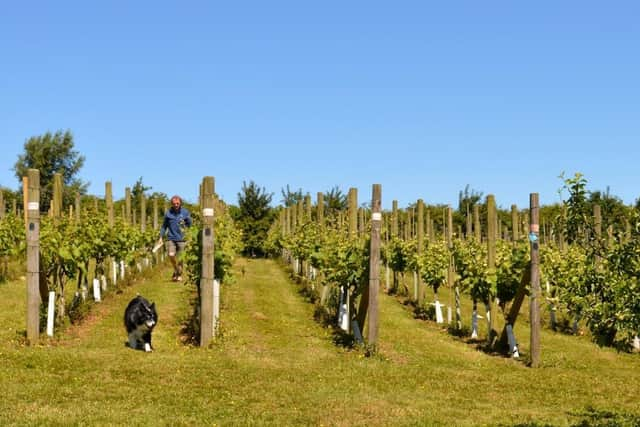

“Yorkshire’s wines are particularly fascinating given the climate we have.” said Mr Fletcher.
_______________________________________________________________________
Editor’s note: first and foremost - and rarely have I written down these words with more sincerity - I hope this finds you well.
Advertisement
Hide AdAdvertisement
Hide AdAlmost certainly you are here because you value the quality and the integrity of the journalism produced by The Yorkshire Post’s journalists - almost all of which live alongside you in Yorkshire, spending the wages they earn with Yorkshire businesses - who last year took this title to the industry watchdog’s Most Trusted Newspaper in Britain accolade.
And that is why I must make an urgent request of you: as advertising revenue declines, your support becomes evermore crucial to the maintenance of the journalistic standards expected of The Yorkshire Post. If you can, safely, please buy a paper or take up a subscription. We want to continue to make you proud of Yorkshire’s National Newspaper but we are going to need your help.
Postal subscription copies can be ordered by calling 0330 4030066 or by emailing [email protected]. Vouchers, to be exchanged at retail sales outlets - our newsagents need you, too - can be subscribed to by contacting subscriptions on 0330 1235950 or by visiting www.localsubsplus.co.uk where you should select The Yorkshire Post from the list of titles available.
If you want to help right now, download our tablet app from the App / Play Stores. Every contribution you make helps to provide this county with the best regional journalism in the country.
Sincerely. Thank you.
James Mitchinson
Editor